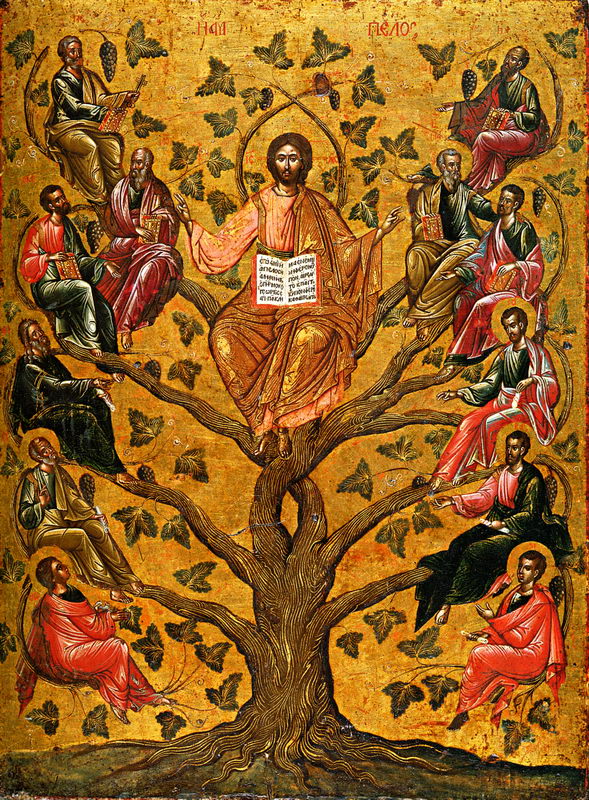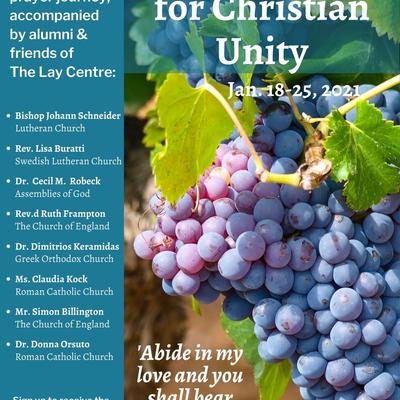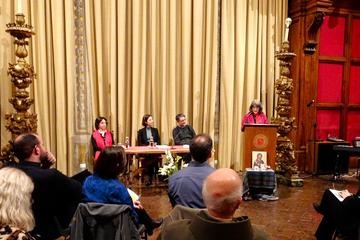
This year’s theme for the Week of Prayer for Christian Unity is “Abide in my love and you shall bear much fruit” (Jn 15:5-9). Each contributor to our series has reflected on a daily verse from this Scripture passage, as indicated by the Pontifical Council for Promoting Christian Unity, for each day of the octave.
Today, Day Seven, Mr. Simon Billington reflects on the verse : “I am the vine, you are the branches” (Jn 15:5a).
Growing in unity
By Simon Billington
Beethoven’s “Pastoral Symphony” is one of the most universally recognized pieces of music. Despite residing in Vienna, Beethoven was a lover of the countryside and this first movement of the symphony transports listeners to sprawling idyllic lands. In listening to this piece, one is struck by the notable work of brass, woodwind and stringed instruments, each delicately marking their own characteristic of this countryside. However, we appreciate the beauty of this movement when we realize that in spite of the instruments’ different narratives, only together do they create the landscape Beethoven wanted to capture.
Thus it is with Church. The apostles were an eclectic group of individuals, and maybe no two were more different than St. Peter and St. Paul. Scripture attests to the tension between these two great saints, their different approaches and the different focus within their ministries. This can be said of all the apostles, saints and Fathers of the Church throughout the ages. Nevertheless, should we be surprised by this?
St. Paul tells us in 1 Corinthians that “there are varieties of gifts, but the same Spirit; and there are varieties of services, but the same Lord; and there are varieties of activities, but it is the same God who activates all of them in everyone” (12:4-6). It is only by working in tandem, towards the same end, that these gifts are able to more than complement each other — they strive for the realization of God’s Kingdom on earth.
As an amateur horticulturalist, I watched with delight last year as surprisingly inclement weather, for the United Kingdom, resulted in a bumper crop of tomatoes. I marvelled at the growth of my tomato plants; how the varying branches, each unique in their shape and character, were supported through their growth from one vine. Marking both similarities and differences between these branches, in their growth they all produced the same fruit.
The unity that God wills for us to share starts and ends with Christ, who is the true “vine.” In Christ mankind is made new. The grace of our shared baptism brings us into communion with God through Christ. This union with the Godhead, by his very nature, is creative; not just giving us the strength to continually recreate ourselves in the cruciform image of Christ, but to sustain us individually and as one Church in our Christian vocation.
The baptismal infusion with the theological virtues of faith, hope and charity serve to help us all produce the same fruit; prudence, justice, fortitude and temperance. It is these qualities that reflect Christ living in us, that mark us out as different from the world around us. These are the fruits of Christ, fruits in which all communions of the one Church can share.
As branches of one vine, Christ, let us cherish, celebrate and lift up God’s fruits in each other, so that the world may be transformed for the glory and praise of the Father.
Suggested listening: Beethoven - 6th Symphony - Pastoral Symphony
Image: Christ the True Vine - Eastern Orthodox icon of Jesus Christ as the True Vine (16th century). Wikipedia.
Mr. Simon Billington (2020) is an ordinand for the Church of England. He has spent most of the last three years undertaking theological study at St. Stephen's House in Oxford, where he lives with his wife and two children. He began his theological formation after a 10-year career in theatre as an actor.




